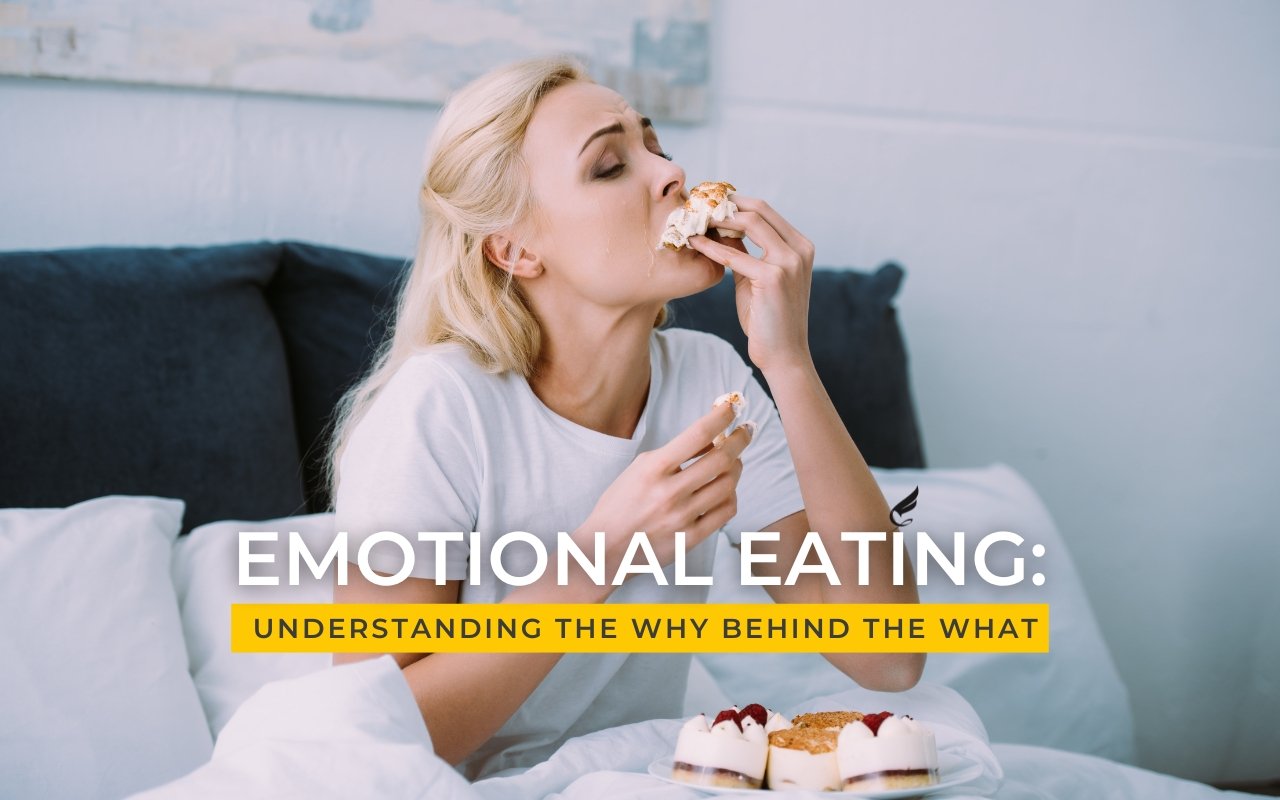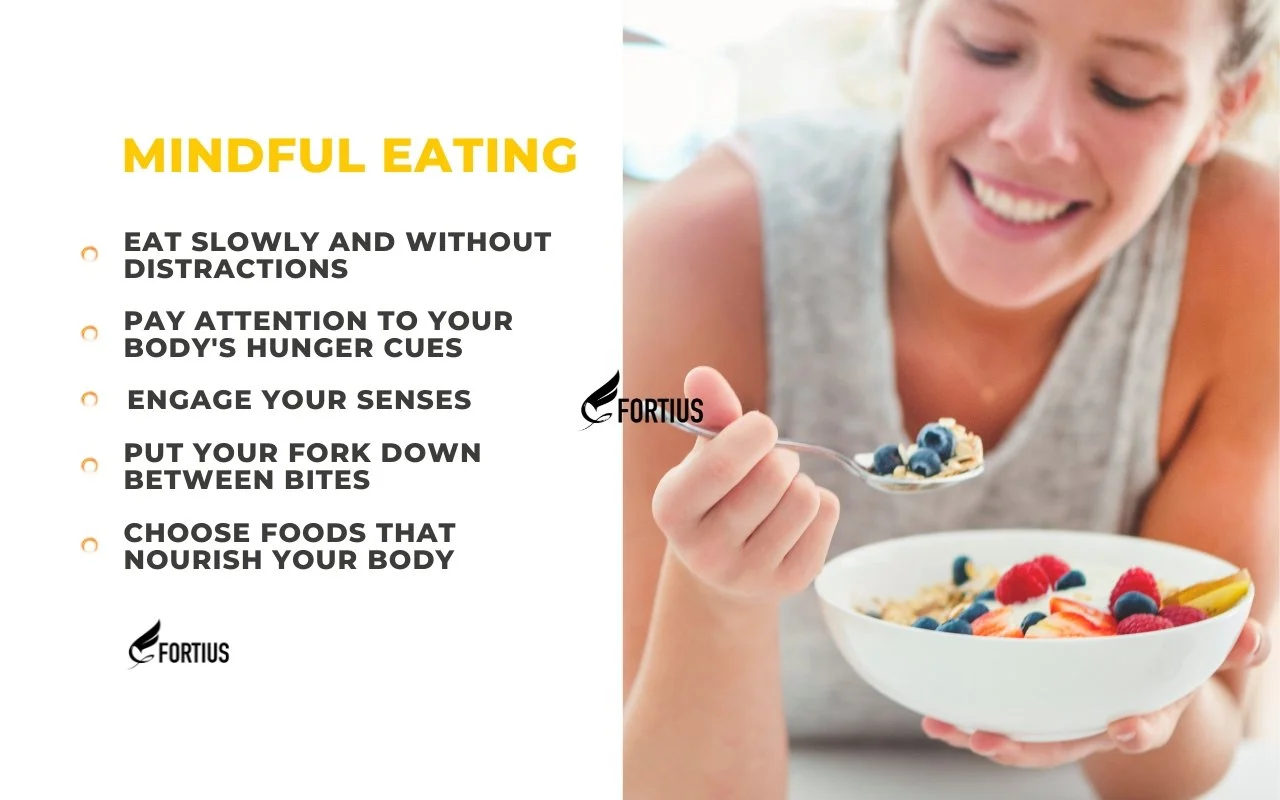The Truth About Emotional Eating: A Dubai Guide to Mindful Eating and a Healthy Relationship with Food
Dubai is a city of vibrant energy and constant motion. Its fast-paced lifestyle and diverse culinary scene offer a world of experiences, but they can also present unique challenges when it comes to maintaining a healthy relationship with food. In the midst of bustling schedules and tempting treats, it's easy to fall into the trap of emotional eating – using food to cope with stress, boredom, or other emotions rather than to satisfy physical hunger.
This blog post delves into the psychology behind emotional eating and provides practical tips for cultivating mindful eating habits and developing a healthier relationship with food in Dubai. Learn how to identify your triggers, manage stress, and make conscious food choices that support your well-being.
Understanding Emotional Eating
Emotional eating is a common struggle, affecting people of all ages and backgrounds. It involves turning to food for comfort or distraction when faced with difficult emotions, rather than in response to physical hunger cues. While a slice of cake after a tough day might seem harmless, chronic emotional eating can lead to unhealthy patterns, weight gain, guilt, and even impact self-esteem.
It's important to distinguish between physical hunger and emotional hunger. Physical hunger comes on gradually, is accompanied by physical cues like stomach growling, and can be satisfied with a variety of foods. Emotional hunger, on the other hand, is often sudden, intense, and specific, craving comfort foods that provide a temporary emotional escape.
Identifying Your Triggers
The first step to overcoming emotional eating is to identify your triggers. What situations, emotions, or thoughts tend to lead you to reach for food when you're not physically hungry? Common triggers include stress, boredom, loneliness, social situations, and even positive emotions like excitement or celebration.
Keeping a journal can be helpful in identifying your personal triggers. Note down your emotions, thoughts, and circumstances before and after episodes of emotional eating. This self-reflection can reveal patterns and provide valuable insights into your relationship with food.
Developing Mindful Eating Habits
Mindful eating is a powerful antidote to emotional eating. It involves paying attention to your body's hunger cues, savoring each bite, and eating without distractions. By bringing awareness to the present moment, you can break free from automatic eating habits and make conscious choices that nourish your body and mind.
Here are some practical tips for practicing mindful eating:
Eat slowly and without distractions: Put away your phone, turn off the TV, and savor each bite.
Pay attention to your body's hunger cues: Eat when you're physically hungry and stop when you're comfortably full.
Engage your senses: Notice the colors, textures, and aromas of your food.
Put your fork down between bites: This allows you to slow down and appreciate your meal.
Choose foods that nourish your body: Opt for whole, unprocessed foods that provide sustained energy and support your overall health.
Managing Stress and Emotions
Stress is a major contributor to emotional eating. When you're stressed, your body releases cortisol, a hormone that can increase appetite and cravings for foods, specifically even more for comfort foods. Learning to manage stress is therefore crucial for controlling emotional eating.
Here are some stress-reduction techniques to incorporate into your daily routine:
Exercise: Physical activity releases endorphins, which have mood-boosting effects.
Meditation and deep breathing: These practices help calm the mind and reduce anxiety.
Spending time in nature: Connecting with nature has been shown to reduce stress and improve well-being.
Social connection: Spending time with your loved ones can provide emotional support and reduce feelings of loneliness.
If you're struggling with overwhelming emotions or underlying mental health conditions, seeking professional help from a therapist or counselor can be beneficial.
Building a Healthy Relationship with Food
Developing a healthy relationship with food involves shifting your focus from restriction and deprivation to nourishment and enjoyment. It's about honoring your body's needs and allowing yourself to eat without guilt or judgment.
Here are some principles to guide you:
Intuitive eating: Listen to your body's hunger and fullness cues. Eat when you're hungry and stop when you're comfortably satisfied.
Balanced nutrition: Focus on consuming a variety of nutrient-dense foods from all food groups.
Challenge negative thoughts: Identify and challenge negative thoughts and beliefs about food and body image.
Practice self-compassion: Be kind to yourself and avoid self-criticism.
Seeking Support
Overcoming emotional eating can be challenging, but you don't have to do it alone. Seeking professional guidance from a therapist or registered dietitian in Dubai can provide valuable support and accountability.
A therapist can help you explore the underlying emotional issues contributing to your eating habits, while a registered dietitian can provide personalized nutrition counseling and guidance on developing mindful eating practices.
Conclusion
Emotional eating is a common struggle, but it's not insurmountable. By understanding the psychology behind emotional eating, identifying your triggers, and developing mindful eating habits, you can take control of your relationship with food and cultivate a healthier, happier lifestyle.
Remember, building a healthy relationship with food is a journey, not a destination. Be patient with yourself, celebrate small victories, and don't hesitate to seek support when needed.
At Fortius Dubai, we're passionate about helping you achieve your health and fitness goals, including developing a positive relationship with food. Contact us today for personalized guidance and support on your journey to mindful eating and overall well-being.









